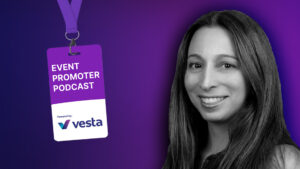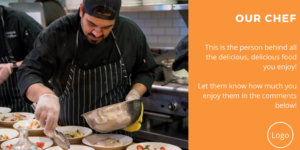The Importance of a Good Event Promoter
Hiring a promoter for your event or venue can tap into an extensive professional event industry network. Planning and executing a successful event can be a daunting task, especially when you have to consider multiple aspects such as budgeting, venue selection, catering, and promotion. While you may have a clear vision of what you want to achieve with your event, getting help from a promoter can be a smart choice.
A good event promoter will not only help you spread the word about your upcoming event but also assist in making sure that your vision is executed flawlessly. Whether it’s a corporate conference, music festival or charity fundraiser, an experienced promoter can make all the difference in ensuring that your event is well-attended and well-received.
They bring their expertise in creating successful campaigns that capture the attention of potential attendees and generate buzz around the occasion. With their extensive network and resources within the industry, they can create unique opportunities for sponsorship deals or collaborations with influencers that can help elevate your brand’s image.
Good promoters need to adapt to the times too. Job skills for event promoters is changing fast. So make sure your considering this.
What Does a Promoter Do For An Event?
There can be a lot of confusion about the difference between an event organizer and promoter. It’s a fair question because role definition in the event and entertainment industry are quite fluid between organizations.
In general though, a promoter is responsible for publicizing and marketing an event. They may also be heavily involved in the organizing of the event. They usually get paid either a flat fee, a percentage of ticket sales, or are the ones paying out the expenses for the event hoping to make a profit on ticket sales at the end.
Here are some key tasks typically performed by a promoter:
- Planning and Coordination: If a promoter is involved in the organization of the event, they start by conceptualizing the event, determining its purpose, format, and target audience. In these cases, they handle logistics such as venue selection, date scheduling, and coordinating with vendors and suppliers.
- Budgeting and Financial Management: Promoters create a budget for the event, estimating the costs of various aspects such as venue rental, production, marketing, and staff. They manage the finances, ensuring expenses stay within the allocated budget.
- Marketing and Promotion: Promoters employ various marketing and promotional strategies to raise awareness about the event. This may involve designing and distributing promotional materials, utilizing social media and online platforms, collaborating with media outlets, and implementing advertising campaigns.
- Ticket Sales and Audience Engagement: Promoters oversee ticket sales and audience engagement initiatives. They set ticket prices, manage online ticketing platforms, and employ strategies to maximize ticket sales. They may also interact with potential attendees, answer inquiries, and provide customer support.
- Event Production and Operations: Promoters coordinate the overall production and operations of the event. This includes managing technical requirements (lighting, sound, equipment), arranging necessary permits and licenses, organizing stage setups, and ensuring smooth execution of the event.
- Sponsorship and Partnership Management: Promoters often seek sponsorships and partnerships to support the event financially or in kind. They identify potential sponsors, negotiate agreements, and manage relationships with sponsors to fulfill mutually beneficial obligations.
- On-Site Event Management: During the event, promoters are responsible for overseeing its smooth operation. They coordinate staff, manage event flow, handle unexpected situations or emergencies, and ensure that attendees have a positive experience.
- Settlement and Post-Event Logistics: After the event, the promoter makes sure everyone is paid any percentages of ticket sales or other payments that were deferred until after ticket sales.
Overall, a promoter’s role involves strategic planning, marketing, financial management, and operational execution to create a successful and memorable event. They are often capable for organizing an event entirely on their own, but will often focus on a few parts of the process and leverage their network of partners to complete the rest.
Factors to Consider When Hiring a Promoter
While hiring an promoter has numerous benefits, choosing one that will best fit your needs requires careful consideration. There are several factors to consider before making a final decision on which promoter to hire. Here are some essential points to keep in mind:
Experience and Reputation
Choosing someone with experience promoting events similar to yours is crucial. You want someone who understands the ins-and-outs of planning different types of events so they can anticipate any potential issues that may arise during planning.
Someone that promotes conferences may not be the best fit to promote your music venue event. And someone who promotes sporting events might not be the promoter for your art market.
Additionally, checking their reputation by asking for references or reading reviews from previous clients is important. A good indicator can be if the same bands or organizers continue to work with them over and over again.
Creativity and Marketing Skills
A good event promoter should have strong marketing skills combined with creativity so they can develop unique ideas for promoting your event. It’s important to find someone who has experience using social media channels like Instagram or Twitter to promote events and has other innovative ideas that can capture the imagination of potential attendees. Great promoters know how to make the most out of event marketing automation tools to reach even more of an audience without wasting precious time. Overall, choosing a good event promoter is a critical step in making sure that your event is successful.
It’s essential to look at multiple factors before making a decision, including their experience level, creativity, marketing skills, tools they use, reputation, and more. By taking the time to thoroughly vet event promoters before hiring one, you can ensure that your event will be well-attended and memorable.
Creativity and Marketing Skills For Promoters
Think Outside the Box
When it comes to promoting your event, you want a promoter who can think outside the box. Someone who can come up with unique and creative ideas to make your event stand out in the crowd.
You don’t want to hire someone who is just going to recycle old ideas that have been done a million times before. Make sure you take a look at their portfolio and see what kinds of events they have promoted in the past.
Ask them about their most successful promotions and what made them successful. A good promoter should be able to provide examples of how they used creativity and ingenuity to produce effective campaigns.
Utilize Social Media and Other Marketing Channels
It’s important that your event promoter has strong marketing skills, particularly in social media and email marketing. Social media is one of the most powerful tools for promoting events today, so it’s essential that your promoter knows how to use it effectively. Ask potential promoters about their approach to social media marketing – which platforms do they prefer? What other marketing tools do they use?
Are they familiar with Facebook Ads Manager or other advertising software? How do they manage hashtags?
Do they have any experience using influencers or creating viral content?
An experienced event promoter will understand how different audiences engage with different platforms, as well as how social media can interact with more traditional forms of advertising like banners or flyers.
They should also be comfortable with email marketing, creating newsletters that grab people’s attention while keeping things concise and informative. A good event promoter will work tirelessly on your behalf across multiple platforms, always looking for new ways to drive interest and keep people engaged in your upcoming event!
Communication Skills
Promoting an event takes a lot of work and coordination, and it’s important to have a promoter who is easy to communicate with.
Whether you prefer phone calls, email, or text messages, your promoter should be available to you and responsive in a timely manner. Make sure to clarify your preferred method of communication upfront so that both parties are on the same page.
Also make sure to define what is and isn’t the role of the promoter. This might seem obvious, but the term “promoter” varies a lot within the event industry. The line between event organizer and promoter is often pretty blurry. So it’s best to communicate transparently early on about what your expectations are.
If the promoter is hard to get ahold of during the planning process, it could be a red flag for potential problems down the line. In addition to being responsive, make sure your promoter can keep you updated on progress as needed.
This includes being transparent about any issues that arise during planning or marketing efforts. You don’t want to be caught off guard by unexpected problems or surprises as the event approaches.
Your promoter should provide regular updates through your preferred mode of communication so that you are always aware of what’s happening behind the scenes. This will allow you to make any necessary adjustments while there is still time before the event takes place.
One of the most critical considerations when hiring an event promoter is your budget. You need to know how much money you are willing to spend on the project so that you can choose a promoter that will work within your constraints.
The first thing to do when discussing budget is to ask the promoter about their fees. You should find out what types of services they provide and how much each service costs.
This way you can determine whether their fees fit within your budget or not. It’s essential to remember that a higher-priced event promoter doesn’t always mean better quality services.
Sometimes, less expensive promoters can achieve the same level of success with fewer resources, connections, or industry experience. So it’s essential to research the market and compare prices before making any final decisions.
Be wary of hidden costs or additional charges that might not be included in initial quotations but emerge later in the process. Another aspect of budgeting is negotiating with the event promoter over fees and payment terms.
Openness about your financial situation and what you are willing to pay for their services can go a long way—ask if they’re willing to adjust their prices or offer discounts for larger events or longer-term contracts. This transparency will help both parties establish an agreement that benefits all parties involved while ensuring that you get value for money spent on hiring an event promoter.
Connections and Resources
When it comes to promoting an event, having a strong network can make a huge difference in the success of your event.
Before hiring a promoter, consider whether they have connections within your specific niche of the event industry that could help promote your event more effectively. This could include connections with relevant media outlets, social media influencers, bookers, or other businesses complementary to your event.
It’s also important to determine if the promoter has access to resources such as advertising space or promotional materials that could be used to promote your event. For example, some promoters may have access to billboards or digital advertising space that you wouldn’t have been able to secure on your own.
Others may have relationships with printers or designers who can create high-quality flyers or posters for your event at a lower cost. Overall, having a promoter with strong connections and resources can not only save you time and money but also help ensure that your event reaches its fullest potential in terms of attendance and overall success.
Flexibility: Adapting to the Unexpected
Ever heard of Murphy’s law?
It essentially states: “Anything that can go wrong, will go wrong.”
It’s a quote you’ll hear a lot in the entertainment and events industry. It’s not true that EVERYTHING will go wrong, but you should have a thick skin and expect that it might.
The event technology doesn’t work right. A speaker is late or cancels last second. Local regulations make an indoor event illegal temporarily. You never know what will pop up.
The true test of a promoter or an even planner is how they handle the stress of things seemingly falling apart.
No matter how well you prepare, unexpected issues can crop up and threaten the success of your event.
That’s why you need a promoter who is flexible and able to adapt to changing circumstances. A flexible event promoter will be able to handle any last-minute changes or unforeseen challenges that arise during the planning process. If they have experience, they should be used to this.
They’ll be prepared with backup plans and contingency strategies in case something goes wrong. They’ll also be open-minded enough to consider new ideas or suggestions that may improve the event, even if they weren’t part of the original plan.
Adapting Plans for Your Event
Flexibility is especially important when working with a new or unfamiliar venue. There may be limitations or unexpected issues with the space that require quick thinking and creative solutions.
If there’s a sudden change in weather conditions, an outdoor event may need to be moved indoors at the last minute – which could require rearranging furniture, repositioning vendors, and adjusting lighting and sound equipment.
A flexible promoter will also work with you to adapt plans based on feedback from attendees and stakeholders. For example, if there are too many food vendors in one area of your festival resulting in long lines and frustrated guests- then they may suggest rearranging booths so there’s more variety spread out throughout different areas of your festival layout.
Or perhaps certain activities are underutilized one day while others have long wait times- this is where flexibility comes into play by moving activities around for better flow during a busy day while still keeping them accessible for those who want them later on.
Ultimately, having a promoter who is willing to work with you every step of the way can make a big difference in ensuring your event runs smoothly no matter what challenges may arise.
Conclusion
Now that we have gone over all the important factors to consider when hiring an event promoter, it is clear that choosing the right one for your event is crucial.
An experienced, creative, and communicative promoter can make all the difference in the success of your event.
By following these tips and doing proper research beforehand, you can ensure that you are making an informed decision. It’s important to remember that a good promoter will not only help you promote your event but also create an unforgettable experience for attendees.
They will come up with unique ideas to attract people to your event and keep them engaged throughout. They will also have the necessary resources and connections in the industry to give your event maximum exposure.
When it comes to budget and fees, transparency is key. A good promoter should be upfront about their costs and work within your budget constraints.
The ability to adapt and handle unexpected issues is also crucial – look for someone who is flexible enough to accommodate changes or unforeseen circumstances during planning. Hiring a reputable event promoter with years of experience in promoting similar events can make all the difference in creating a successful event.
Don’t be afraid to ask for references or read reviews before making a decision, as well as ensuring they possess marketing skills, creativity, communication skills, connections/resources within the industry among other factors mentioned above. With these tips in mind, you’ll be well on your way towards hosting an unforgettable professional gathering!
Want help promoting your events and advice on how to make your events more exciting? Click here to learn more about how we help successfully promote thousands of events per year.





